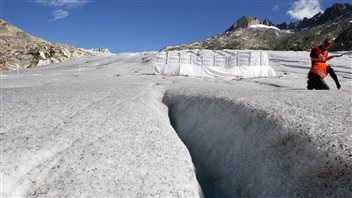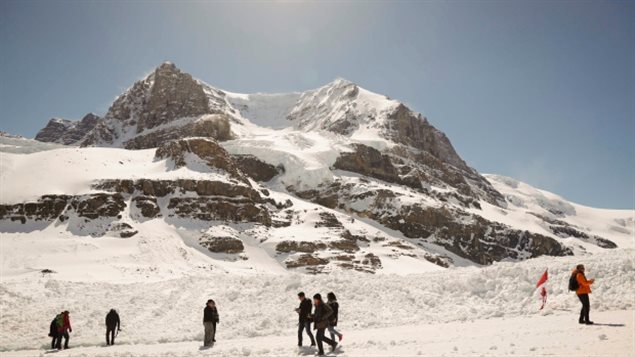Glaciers around the world have been shrinking since the 1850s but the pace has picked up, and human activity has become the biggest factor driving that, according to a new study.
Using numerous computer models, scientists from Canada and Austria compared the melting of many glaciers to find that natural variations were not enough to explain their retreat and that greenhouse gases are playing an increasing role.
Listen
“It’s a nail in the coffin for the idea that we’re not to blame for the observed changes in the climate,” says the study’s co-author, Graham Cogley, a glaciologist at Trent University in Ontario. He adds that even if emissions were stopped tomorrow the melting would go on, raising sea levels and eventually causing water shortages.







For reasons beyond our control, and for an undetermined period of time, our comment section is now closed. However, our social networks remain open to your contributions.